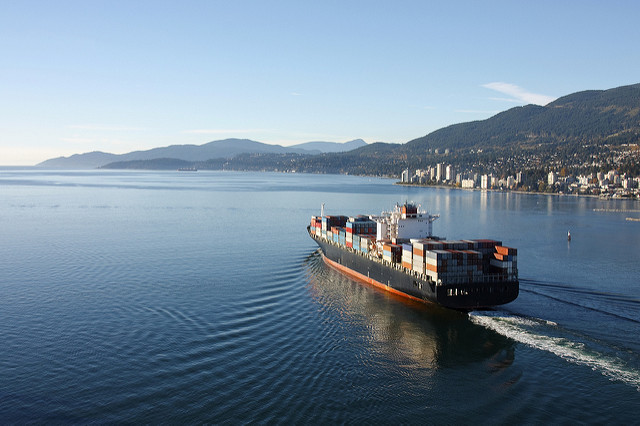An Unfortunate Common Ground
Hillary Clinton and Donald Trump seem to be diametrically opposed in every way, except for the strange and misguided aversion they have towards free-trade, a policy that has been beneficial to every nation that has adopted it. Both candidates make the claim that free-trade deals, most notably the TPP and NAFTA, have been strangling the American economy by taking jobs from hard working Americans and shipping them overseas. Both candidates are quite simply wrong. While a number of jobs that used to be filled by Americans have moved to countries like China and India, the full reality of the situation is a very different story.
The candidates refer mainly to manufacturing jobs being sent to the developing nations of Asia (nations that are only now experiencing an industrial revolution on a scale to the one the west experienced nearly a century and a half ago) and it is true that in the short term our country has lost many of these manufacturing jobs. The long term reality however, is far more beneficial, we are now able to place our people in higher paying jobs instead of relegating them to the low paying manufacturing jobs with which they were previously burdened. A prime example of this shift and its positive economic benefits can be see in the business practices of Apple.
Apple is notorious for manufacturing its products, most notably the iPhone, in China, a choice made due to the low cost in labour and more efficient supply lines. The upshot of this is that consumers are able to buy one of the most advanced pieces of personal technology for a relatively inexpensive $650.00. If that same iPhone were produced entirely in the United States, the estimated cost is around $2,000, according to Marketplace.org. In addition to being less costly to the consumer, the savings in manufacturing costs means that Apple is no longer wasting its large, but limited, funds on American resources that are ill fit for the menial manufacturing role. Using Chinese resources to do that at which they are more efficient than Americans allows American resources to do that at which they are more efficient. In the case of Apple that translates to Americans being hired to develop new software, design new hardware, market new products, and even branch into new industries (there is now talk of an Apple car). All of these positions have to be filled by Americans, because they are positions at which we are uniquely capable. If Apple did their manufacturing in the United States, they would have wasted American labour on work that does not require the skill of American labourers. Over-qualified workers in the United States would be tied down by the menial labour of manufacturing, something that could be done by an individual abroad with with half the skill and a quarter of the education. American intellect and innovation would be totally wasted.
If Mrs. Clinton and Mr. Trump get their way, our country will look vastly different than it does today. Under the guise of protection for us and punishment for them, there will be tariffs preventing the free importation of manufactured goods to the United States, preventing Americans from meeting their full potential. Instead of being allowed and encouraged to work in product development and in roles with seemingly infinite chance of advancement, they will be limited by artificially imposed demand to jobs that could be performed by those in another country with a fraction of their qualifications.
When those seeking the presidency claim that we are losing jobs to China, they are wrong. We are gaining new jobs that are better suited for us by sending those at which we are over-qualified abroad. When they say that they will protect the American people by imposing tariffs, they are wrong. They will only be limiting the American potential by tying Americans down to jobs that would have been more than adequate for US citizens of 1950, but have faded from memory since the dawn of the post industrial age.
The solution to the economic turmoil that spawned this mercantilist revival is not more government intervention in trade, it’s less. We shouldn’t seek to punish foreign countries with tariffs or limited trade agreements, because in the end we are only punishing ourselves. Economist Milton Friedman pointed out that “We would be benefited by dispensing with our tariffs even if other countries did not.” Instead of renegotiating hundreds of trade agreements as Trump and Clinton suggest, the Senate should pass one trade agreement allowing for unrestricted trade with all nations friendly to the United States (perhaps exceptions could be made in cases of national security; it may be a bad idea to outsource the production of advanced military technology). Such a trade agreement would foster growth and innovation such as the world has never before seen. To once again quote Milton Friedman, “let us live up to our destiny and set the pace, not be reluctant followers.”
Follow me on Twitter: @FrankJConnor
Image Source: USDA/Flickr
License: CC BY 2.0

